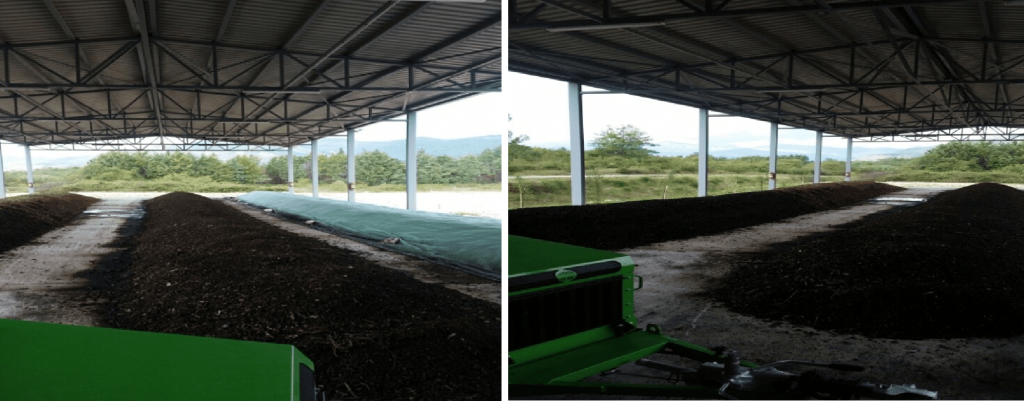Kotor is a Montenegrin port city located in the Bay of Kotor on the Adriatic Sea. Its beautiful landscape and natural environment led UNESCO to name Kotor part of the World Heritage Site, because of its outstanding universal value and its role in spreading the Mediterranean culture. Recent growing in tourism numbers supposes a challenge and an opportunity for the city’s waste management processes.
Utility Company Kotor is the local company in charge of collection, transport and disposal of non-hazardous waste. They manage the first composting facility working in Montenegro, in which they also collect wastewater from the production process in a special pond.
Composting is their main activity. They apply aerobic composting with aerated windrow method, which consist in forming waste into rows of long piles. The production process lasts from 3 to 6 months, depending on the type of the material, and the compost may be used 5 to 9 months later.

Kotor is keen on promoting the local circular economy. Autochthonous plants from the area are used for production of compost, as green waste makes up to 25% of the total waste collection in the city during a year.
Then the compost is mainly employed for maintenance of public green spaces in the municipality, but also in agriculture, gardening, horticulture and cultivation of various types of plants. The Centre for Ecotoxicological Research has carried out several compost analyses, confirming that the good quality of this organic fertilizer allows to improve physical, chemical and microbiological properties of soil.
Utility Company Kotor plans to expands the facility’s capacity to compost organic waste too. They will engage their citizens in this opportunity by involving restaurants in the provision of material for composting and offering the remaining compost to interested people, once they acquire a sieve and packing machine.
Citizens’ participation in local circular economy projects such as the one developed in Kotor are key, especially in cities with increasing tourism. Utility Company Kotor’s willing to improve and cooperate is a source of inspiration for all the HOOP network of cities and regions and can be adapted and replicated by joining the HOOP network and sharing experiences with all its members.
